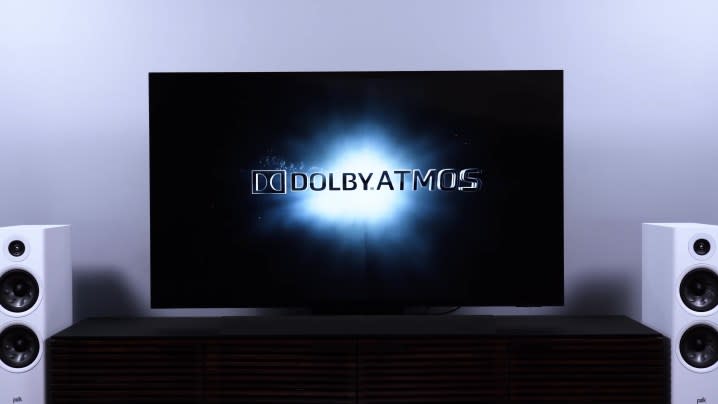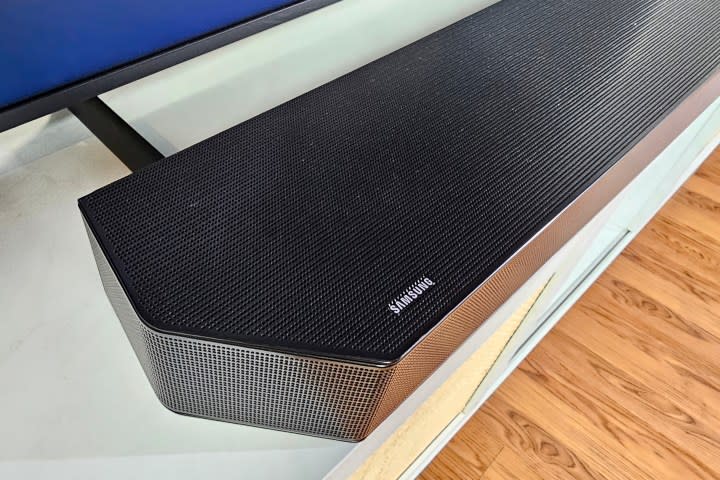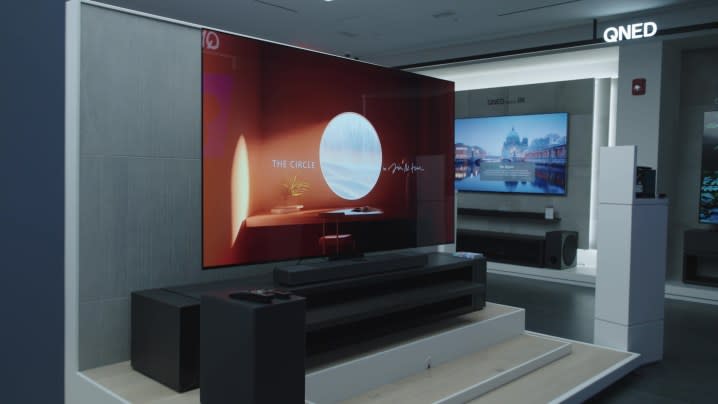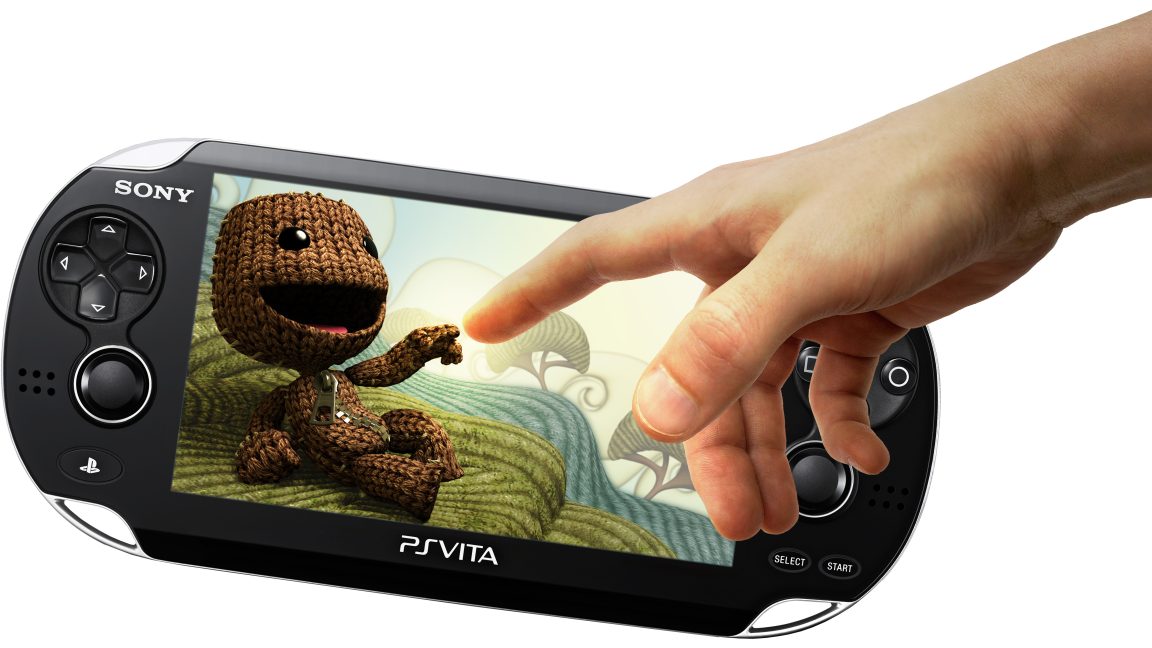Tech
You Asked: Panasonic is back, what is IAMF, and more on the LG C4

On today’s episode of You Asked: Panasonic is back — so, what comes next? Rtings.com weighs in on the LG C4 and shows us what respect and integrity looks like. And remember that Samsung and Google partnership designed to take on Dolby Atmos? What’s up with that?
What is IAMF?

Let’s kick things off with an email from Norman, who wants more info on the Samsung and Google partnership that aims to take on Dolby Atmos with what has been called IAMF, or Immersive Audio Model and Formats. Norman wants to buy a new TV and soundbar, but he doesn’t want to do so until he knows some existing devices will support it — or that it’s coming to products in 2025.
To catch everyone up, Samsung announced in November 2023 that it had teamed up with Google to develop IAMF. (Which I really, really, really hope is just a working name, because I just don’t see that working great on the side of boxes.) Since that announcement, it was shown at CES in January 2024, though I admittedly did not get to experience the demo.
IAMF is meant to be an open-source 3D audio format. Another way of putting it is that it is meant to provide a Dolby Atmos-like surround sound experience without relying on Dolby at all — including having to pay Dolby’s licensing fees. To date, Samsung does not support Dolby Atmos at all.
Creating Dolby Atmos audio requires a bunch of steps in the Dolby pipeline. Audio needs needs to be mixed and mastered in Dolby Atmos and encoded in Dolby’s format, then decoded using Dolby decoders.
IAMF would be an open-source standard that anyone could adopt, delivering 3D audio with no payments made to Dolby. At least, that’s one way of looking at it. Digging deeper, it appears that IAMF could offer more.
When I say that IAMF would take on Dolby Atmos, it’s important to clarify that it looks like Samsung, at least for now, is more interested in providing 3D audio from TV speakers and simpler soundbars — offering height effects and virtual surround without having speakers all over your room. Dolby Atmos can be used in the same way. But, again, you have to play in Dolby’s playground and pay for the privilege.


IAMF would allow all kinds of content creators — even smaller independent creators — to create 3D audio. And that 3D audio could be played on a wide range of devices and platforms, in a wide range of environments.
Well, last we heard, it was hoped that IAMF would make its debut late in 2024 which, by my watch is … right now? Or at least right around the corner.
That doesn’t mean that your Samsung TV or soundbar will necessarily be able to take advantage of IAMF later this year, though. I imagine a big firmware and software update theoretically could allow existing Samsung devices to accept it soon. But without firm confirmation from Samsung that is the case, I wouldn’t put money on that idea.
I do think, however, that if IAMF has been progressing well behind the scenes, Samsung will launch it and make a very big deal about it at CES 2025 in just a few months. But I have a lot of concerns. That’s not going to stop me from speculating, though.
Repeat: This is speculation. Once IAMF launches, how long will we have to wait until there’s content to enjoy? I just don’t see Netflix, Disney+, or Max adopting it right away. Maybe Amazon? Amazon was quick to jump on the HDR+ train, so I can see Amazon being a launch partner with Samsung on IAMF.
Here’s another concern: Dolby Atmos is ubiquitous. A lot of big industry players are heavily invested in Dolby Atmos production, and maybe they will add on IAMF to their workflow. But I don’t think they will ditch Dolby Atmos — at least not anytime soon.
Where IAMF could grab the greatest foothold is through content providers that don’t currently do Dolby Atmos at all. I’m thinking YouTube, Pluto — streaming services that just support basic stereo sound. So maybe that’s what it looks like when it comes out?
I would not let IAMF in any way shape a purchase decision right now. This is one area in which I just don’t see FOMO coming into play. And I’m talking about actual FOMO.
Rtings responds to LG C4 issues


This next one is more of a shout-out to Rtings.com, which responded to a call-out I made in a previous episode of You Asked in which I addressed some questions about an issue of green tint on the LG C4 OLED when viewed at an angle. I detailed my experience with the LG C4 I reviewed, contrasted that with Rting’s narrative, and because I wasn’t sure what the tenor and tone around Rtings’ narrative actually was, I asked that they help clarify things.
That’s exactly what they did. Here’s what Rtings said:
Hey folks! Sorry for the delay on our end, but we just came across this video and wanted to jump in to try and clear things up!
One thing we can confirm remains unchanged is that there’s a noticeable green tint on the C4 we bought and tested. This is a widespread issue that impacts almost all LG OLED panels, but this is also something that can vary widely from unit-to-unit. LG Electronics has confirmed to us that our unit is about as bad as it gets, and anything worse wouldn’t pass LG’s quality control checks. Although it varies between units, most people shouldn’t see this issue on their TV. This issue also isn’t new or exclusive to the C4, as it’s been an issue on LG TVs for a few years now.
That said, we’ve actually gone ahead and updated our review to echo this sentiment properly, as we never want our reviews to be misleading to users.
Caleb, we really appreciate you bringing this up and starting this dialogue, since it’s helped us improve the quality of our review. Thanks a bunch!
And if you or anyone in the comments have any follow-up questions or concerns, we’re happy to further discuss things!
So, first off, thanks to Rtings for taking the time to comment. Second, thanks to Rtings for being truly classy about it. This is what collaboration should look like. Fewer assumptions, more questions that seek to understand. In a YouTube world where character assaults thinly veiled as “reaction videos” are so common, this is a super-big breath of fresh air.
Also, I think it is great to know that we all collectively have the right read on the green-tint issue. Rtings is correct, and I’ve written a lot about it. W-OLED panels from LG displays tend to have a slight green tint, and QD-OLEDs from Samsung tend to have a more magenta or pink-ish tint. In most cases it is a difference you only see in side by side comparisons where you have a point of reference. Furthermore, there are levels of severity to this. It sounds like the unit Rtings got was on the stronger side, while mine was on the weaker side.
And now we all know more than we did before, and we can all make better decisions. I love it. Thanks again to Rtings for taking the time. And here’s to more collaboration in the future!
Panasonic’s return to the U.S. market


Gree7964 wrote: Could you review the new Panasonic W95 Series Mini LED TV soon? I have been a Panasonic fan for professional video products, so I’m interested to see how their newest consumer TV is compared to the other top brands you regularly review. And Johnnyice428 wrote: I was going to upgrade to LG’s 65-inch G4. But with the announcement of Panasonic’s return to the U.S. market I want to wait for a review of the U.S. release. Will you be reviewing the flagship version of the three being released?
First things first: Nobody is snubbing Panasonic here. Had I been able to make an event held in California a few weeks back, I might have gotten the TVs two weeks earlier. Unfortunately, I could not attend. Just wasn’t in the cards, I’m afraid.
Second, I haven’t published a video around Panasonic’s return not because I don’t think it is a big deal, but because we have a long line of televisions that are going to be reviewed. In other words, I have to prioritize. And while I am stoked about Panasonic’s return, I had to wait to talk about it until it fit — which is right now.
I have two of those new Panasonic TVs on the way. I’m getting the Z95A OLED and the W95A mini-LED. Panasonic coming back is super exciting. I’ve been looking forward to this day for years. And now that it is finally here, I’m kind of geeking out.










